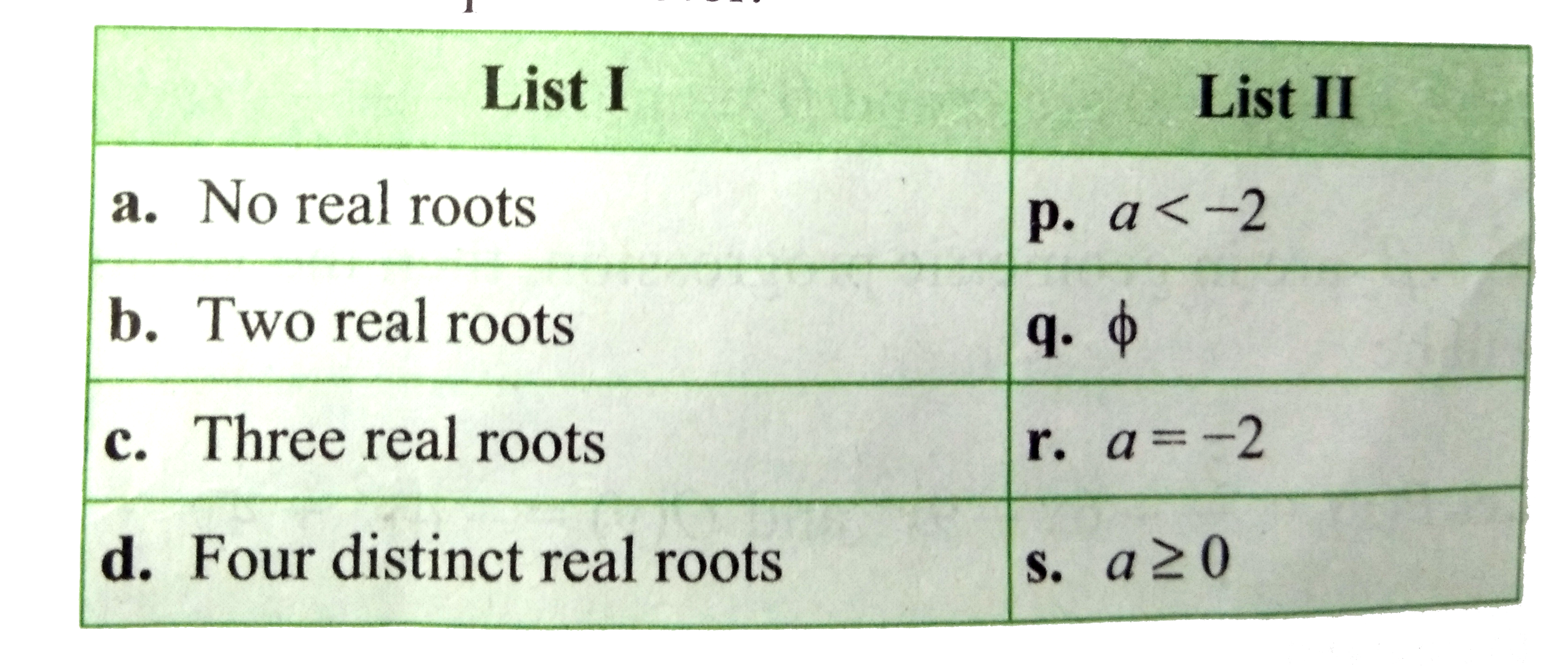Text Solution
Verified by Experts
The correct Answer is:
Topper's Solved these Questions
THEORY OF EQUATIONS
CENGAGE|Exercise Exercise (Numerical)|43 VideosTHEORY OF EQUATIONS
CENGAGE|Exercise JEE Main Previous Year|7 VideosTHEORY OF EQUATIONS
CENGAGE|Exercise Exercise (Comprehension)|37 VideosSTRAIGHT LINES
CENGAGE|Exercise JEE Advanced Previous Year|4 VideosTHREE DIMENSIONAL GEOMETRY
CENGAGE|Exercise Question Bank|12 Videos
Similar Questions
Explore conceptually related problems
CENGAGE-THEORY OF EQUATIONS-Exercise (Matrix)
- Match the following for the equation x^(2)+a|x|+1=0 where, a is a para...
Text Solution
|
- Match the following for lists:
Text Solution
|
- Match the following lists:
Text Solution
|
- Consider equation ((x^(2)+x)^2)+a(x^(2)+x)+4=0 Match the values of a ...
Text Solution
|
- A bag contains 2 red balls and 6 black balls. A ball is drawn at rand...
Text Solution
|
- Consider equation x^(4)-6x^(3)+8x^(2)+4ax-4a^(2)=0,ainR. Then match th...
Text Solution
|
